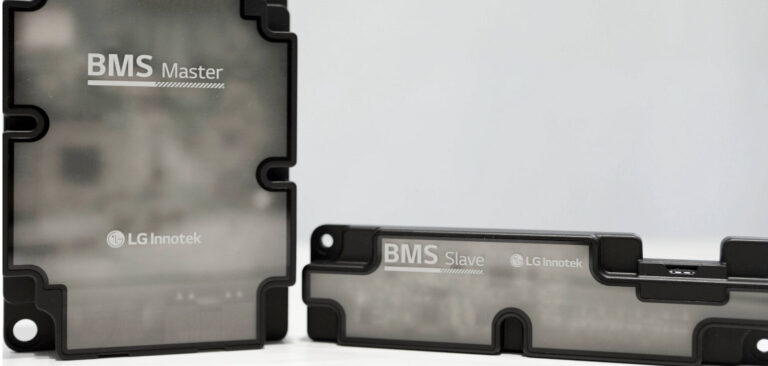LG Innotek has announced that it has developed an 800V, wireless battery management system (wireless BMS) that significantly improves EV battery performance.
The wireless BMS is embedded with a radio frequency (RF) communication module that combines essential components for wireless communication, such as a RF communication chip and antenna, into one unit.
LG says that the key advantage of a wireless BMS is that it contributes to reducing vehicle weight. Once the cables connected to the BMS are removed, the weight of a vehicle can potentially be reduced by 29-90kg, and the volume is also reduced. This, the company states, secures an additional 10-15% of volume for a which enables capacity to be increased. This additional space within the battery pack also affords greater design flexibility, such as changes to the battery pack structure.
LG also states that reliability is improved as the possibility of a cable or connector failure due to vehicle vibration is completely removed. Furthermore, some assembly stages of a battery pack that previously have been conducted manually due to the complexity of cable connections can now be automated using a robot, enabling a reduction in costs.
To send and receive data for an electric vehicle battery wirelessly, a wireless BMS must be equipped with dozens of components such as an RF circuit, RF communication chip and antenna. The RF communication module LG has developed uses its proprietary high-precision, high-density, multi-layer board technology.
The RF communication module is composed of a four-layer board and dozens of wireless communication components that were densely integrated into this board. This structure helped the company to develop a wireless BMS on which the battery pack could be mounted much more easily. The RF communication module mounted on the wireless BMS is designed to be compatible with all types of communication chips.
LG has also developed simulation technology which it says enables virtual inspection of wireless communication quality during the development stage of a battery pack design.
The company plans to start mass production of the wireless BMS in 2024.
Yoo Byaeng-kuk, VP of LG’s Automotive Components and Electronics Business Unit, said, “We will continue to release next-generation automotive electrical components that provide differentiated customer value, and expand our global foothold as a total solution provider in near future.”


